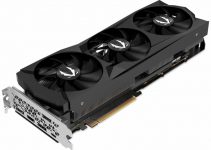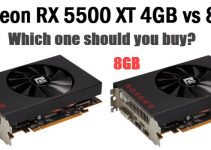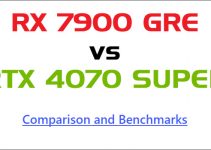The RTX 20 graphics card series from Nvidia has got a new member which is the RTX 2060 12GB. It is not an entirely new card but I would say a sort of hybrid of RTX 2060 and RTX 2060 SUPER because it shares some characteristics from these two cards. Moreover, the place for the RTX 2060 12GB in the GeForce RTX 20 GPU series lineup lies in between the RTX 2060 and RTX 2060 SUPER. The main striking point of RTX 2060 12GB is that it comes with more memory than the RTX 2060 and RTX 2060 SUPER which may give it an advantage in some games and applications. So, if you are wondering how the new RTX 2060 12GB fares against its brothers in various departments, here I am going it compare it on important parameters along with providing gaming benchmarks.
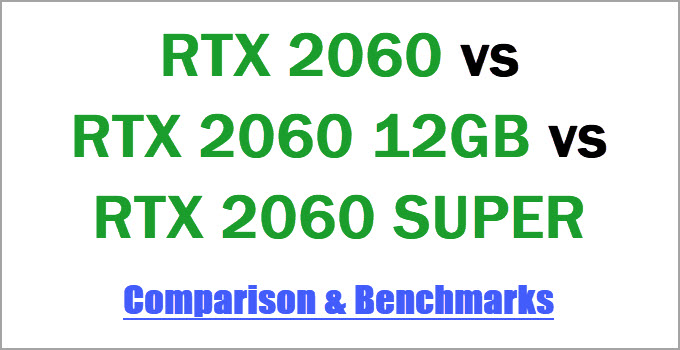
RTX 2060 6GB vs RTX 2060 12GB vs RTX 2060 SUPER Comparison
Below is a comparison between RTX 2060, RTX 2060 SUPER, and RTX 2060 12GB cards based on their specifications, performance, pricing, power consumption, and features.
GPU
All three cards are built on the Turing GPU architecture on the 12nm fabrication process and come with a TU106 GPU chip. However, RTX 2060 uses a cut-down version of TU106 silicon with some cores locked and thus has lesser cores overall. RTX 2060 12GB and RTX 2060 SUPER come with 2176 CUDA Cores, 64 RT Cores, and 136 Turing Cores while RTX 2060 comes with 1920 CUDA Cores, 48 RT Cores, and 120 Turing Cores. So, when it comes to GPU then RTX 2060 12GB and RTX 2060 SUPER are almost identical in specs.
| RTX 2060 | RTX 2060 12GB | RTX 2060 SUPER | |
| GPU Chip | TU106 | TU106 | TU106 |
| GPU Architecture | Turing | Turing | Turing |
| Fabrication Process | 12nm | 12nm | 12nm |
| CUDA Cores | 1920 | 2176 | 2176 |
| Ray Tracing Cores | 48 | 64 | 64 |
| Tensor Cores | 120 | 136 | 136 |
Video Memory [VRAM]
When it comes to video memory then all these cards come with GDDR6 memory running at 14Gbps speed. However, they all differ in memory capacity and bandwidth. The card with the highest VRAM is the new RTX 2060 12GB having 12GB GDDR6 memory on a 192-bit interface, offering a bandwidth of 336 GB/s. On the contrary, the card with the lowest memory is RTX 2060 that comes with only 6GB GDDR6 memory at a 192-bit interface churning out 336 GB/s of memory bandwidth. RTX 2060 SUPER comes with 8GB GDDR6 memory having a 256-bit interface and offers the highest memory bandwidth here which is 448 GB/s. So, on the whole, the card that wins in the video memory department is the RTX 2060 SUPER because of its higher memory bandwidth.
| RTX 2060 | RTX 2060 12GB | RTX 2060 SUPER | |
| Memory Size | 6GB GDDR6 | 12GB GDDR6 | 8GB GDDR6 |
| Memory Interface | 192-bit | 192-bit | 256-bit |
| Memory Speed | 14Gbps | 14Gbps | 14Gbps |
| Memory Bandwidth | 336 GB/s | 336 GB/s | 448 GB/s |
Features
When it comes to features then all these cards share the same feature set. All of them support DirectX 12, OpenGL 4.6, Vulkan, OpenCL, Real-Time Ray Tracing, Deep Learning Super Sampling (DLSS), Nvidia G-Sync, and come with new NVIDIA Encoder (NVENC) for better performance in online streaming, video editing, and encoding. Also, all are VR Ready cards and do not support SLI for multi-GPU setup.
| RTX 2060 | RTX 2060 12GB | RTX 2060 SUPER | |
| Bus Interface | PCI Express 3.0 | PCI Express 3.0 | PCI Express 3.0 |
| DirectX | 12 Ultimate | 12 Ultimate | 12 Ultimate |
| OpenGL | 4.6 | 4.6 | 4.6 |
| Vulkan | 1.2 | 1.2 | 1.2 |
| SLI/CrossFire | No | No | No |
| VR Ready | Yes | Yes | Yes |
| G-Sync | Yes | Yes | Yes |
Gaming Performance
Here are the gaming benchmarks of these cards at 1080p resolution.
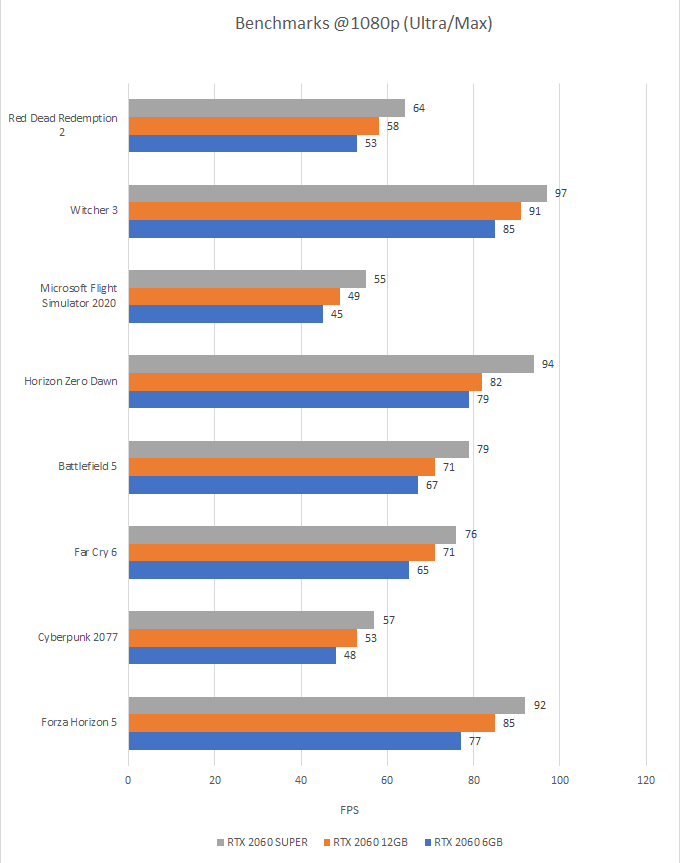
From the above benchmarks, you can see that RTX 2060 SUPER is the fastest of three while RTX 2060 is the slowest. Here, the margin by which 12GB RTX 2060 is faster than RTX 2060 is almost the same margin by which it is beaten by the RTX 2060 SUPER.
Power Consumption
The most power-efficient card here is the RTX 2060 at 160W while the one that consumes the highest power is RTX 2060 12GB at 184W. The power consumption figure for RTX 2060 SUPER stands at 175W that lies in between RTX 2060 and RTX 2060 12GB power figures.
| RTX 2060 | RTX 2060 12GB | RTX 2060 SUPER | |
| Power Consumption | 160W | 184W | 175W |
Price & Availability
The launch price of RTX 3060 was 349 USD while that of RTX 2060 SUPER was 399 USD for the Founders Edition versions. There is no Founders Edition RTX 2060 12GB card and only custom models will be available from various AIB partners or graphics card manufacturers. You can check the current prices of these cards for various AIBs from the links given below.
Check RTX 2060 Price on Amazon
Check RTX 2060 SUPER Price on Amazon
Check RTX 2060 12GB Price on Amazon
RTX 2060 6GB vs RTX 2060 12GB Specifications
| RTX 2060 | RTX 2060 12GB | RTX 2060 SUPER | |
| GPU Chip | TU106 | TU106 | TU106 |
| GPU Architecture | Turing | Turing | Turing |
| Fabrication Process | 12nm | 12nm | 12nm |
| CUDA Cores | 1920 | 2176 | 2176 |
| Ray Tracing Cores | 48 | 64 | 64 |
| Tensor Cores | 120 | 136 | 136 |
| Memory Size | 6GB GDDR6 | 12GB GDDR6 | 8GB GDDR6 |
| Memory Interface | 192-bit | 192-bit | 256-bit |
| Memory Speed | 14Gbps | 14Gbps | 14Gbps |
| Memory Bandwidth | 336 GB/s | 336 GB/s | 448 GB/s |
| Bus Interface | PCI Express 3.0 | PCI Express 3.0 | PCI Express 3.0 |
| DirectX | 12 Ultimate | 12 Ultimate | 12 Ultimate |
| OpenGL | 4.6 | 4.6 | 4.6 |
| Vulkan | 1.2 | 1.2 | 1.2 |
| SLI/CrossFire | No | No | No |
| VR Ready | Yes | Yes | Yes |
| G-Sync | Yes | Yes | Yes |
| Power Consumption | 160W | 185W | 175W |
Final Thoughts
Well, RTX 2060 12GB is quite an interesting card that I think does not stand out on its own. It is almost an RTX 2060 SUPER with an extra 4GB memory but with reduced memory bandwidth and a slightly higher power consumption figure. I think the extra 4GB VRAM is not going to be that useful because for 1080p gaming or even some 1440p gaming, a faster 8GB VRAM of RTX 2060 SUPER has enough video memory that is faster too. Also, even with the same amount of CUDA Cores, RT Cores, and Tensor Cores, the RTX 2060 12GB is a bit slower than RTX 2060 SUPER. In my opinion, RTX 2060 12GB is definitely not an RTX 2060 SUPER alternative and is only a botched-up RTX 2060. If you have any opinions or queries regarding the topic then do let me know in the comment box below.
(*This post may contain affiliate links, which means I may receive a small commission if you choose to purchase through the links I provide (at no extra cost to you). Thank you for supporting the work I put into this site!)
